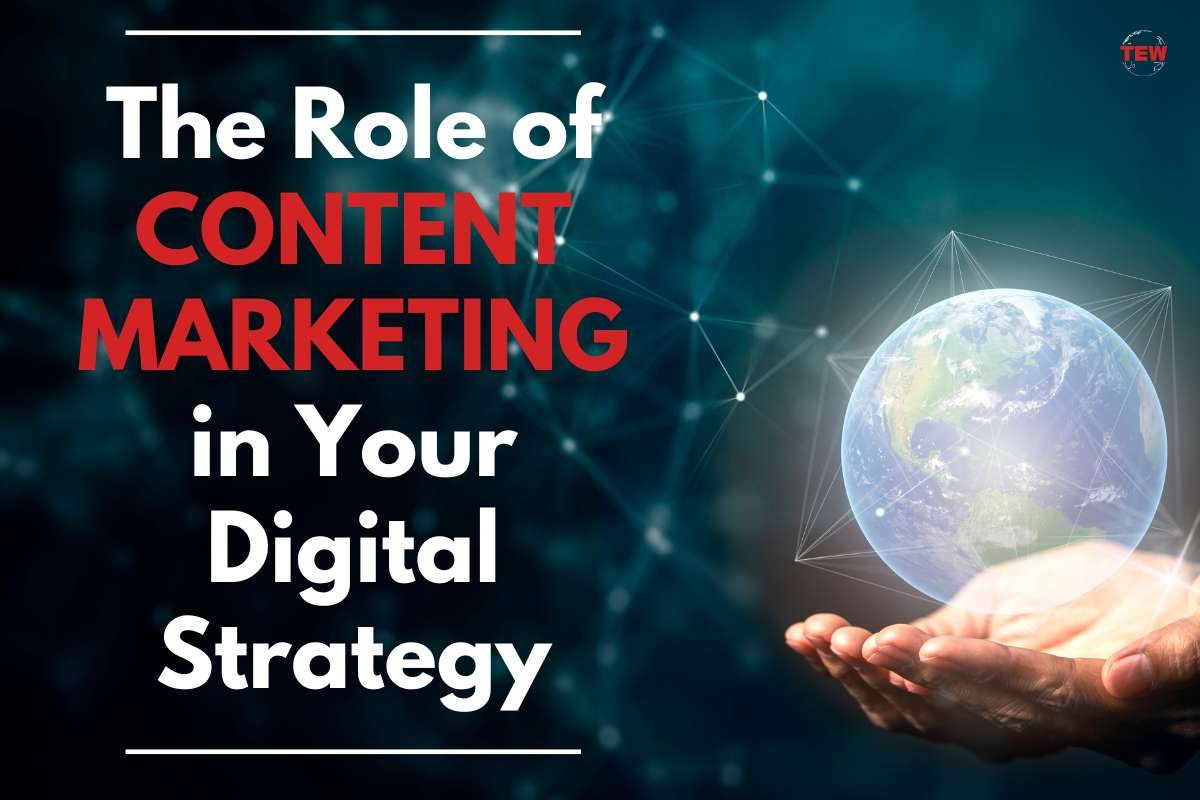In the vast digital landscape, where competition for attention is fierce, businesses are continuously searching for effective ways to stand out and engage with their target audience. One strategy that has proven to be a game-changer in the digital realm is content marketing. With its ability to captivate, inform, and connect, content marketing plays a vital role in shaping a successful digital strategy.
At its core, content marketing is about more than just selling products or services. It’s about building relationships, providing value, and establishing trust with your audience. By creating and distributing valuable, relevant, and compelling content, businesses can connect with their target audience on a deeper level and differentiate themselves from the noise.
The Benefits of Content Marketing
Through well-crafted content, businesses can address the pain points, interests, and needs of their target customers. By providing informative and engaging content, businesses can position themselves as trusted sources of knowledge, creating a sense of credibility and expertise. This not only establishes brand authority but also fosters a loyal community of customers who see value in the content provided.
Along with that, content marketing allows businesses to humanize their brand and create a genuine connection with their audience. By adopting a conversational and authentic tone in their content, businesses can establish an emotional connection and build trust with their customers. This helps to differentiate the brand from competitors and fosters a sense of loyalty and affinity among the target audience.
Content marketing offers numerous benefits for businesses looking to enhance their digital strategy. It helps:
1. Increase Brand Visibility
By consistently delivering high-quality content, businesses can increase their online presence, visibility, and reach.
2. Drive Traffic to Websites
Engaging content attracts organic traffic to websites, improving search engine rankings and generating valuable leads.
3. Establish Thought Leadership
Producing valuable and insightful content positions businesses as industry thought leaders, enhancing their authority and reputation.
4. Boost Customer Engagement

Interactive and shareable content encourages audience participation, fostering meaningful interactions and social sharing.
5. Enhance Customer Trust
Providing valuable and relevant content builds trust with customers, leading to higher brand loyalty and repeat purchases.
6. Support SEO Efforts
Well-optimized content helps businesses rank higher in search engine results, driving organic traffic and improving visibility.
Creating Valuable Content
In an era where information overload is a constant challenge, creating valuable content has become a crucial element in capturing and retaining the attention of audiences. Valuable content goes beyond mere words on a page or a screen—it provides meaningful insights, educates, entertains, and leaves a lasting impact on the reader. It is the cornerstone of effective communication, brand credibility, and audience engagement.
The importance of creating valuable content cannot be overstated. In a crowded digital landscape, businesses and individuals alike must strive to stand out by offering content that adds genuine value to the lives of their target audience. Valuable content not only meets the needs and desires of the audience but also exceeds their expectations, leaving them wanting more.
To succeed in content marketing, it is essential to create content that provides value to your target audience. This involves:
Researching Your Audience
Understanding your target audience’s needs, preferences, and pain points is crucial. Conduct thorough research to identify their interests, challenges, and the type of content they engage with the most.
Developing a Content Strategy
Based on your audience research, create a comprehensive content strategy that aligns with your business goals. Determine the types of content you will create, the channels you will use, and the frequency of content publication.
Crafting Compelling and Informative Content
Focus on creating content that educates, entertains, or solves a problem for your audience. Make it engaging, easy to read, and visually appealing. Use storytelling techniques to capture attention and maintain interest.
Targeting the Right Audience
According to Ken Savage, businesses must understand that not all individuals are their ideal customers, and success lies in identifying and reaching those who are most likely to resonate with their brand, products, or services. Effective audience targeting allows businesses to tailor their marketing efforts, deliver relevant messages, and build meaningful connections with the people who matter most.
Targeting the right audience involves a strategic approach to defining and understanding the characteristics, preferences, and behaviors of the ideal customer. By conducting thorough market research and leveraging data-driven insights, businesses can gain valuable knowledge about their target audience’s demographics, psychographics, interests, and pain points.
Identifying and targeting the right audience is crucial for the success of your content marketing efforts. This involves:
Defining Buyer Personas

Develop detailed buyer personas that represent your ideal customers. Consider demographics, interests, pain points, and motivations to create targeted content that resonates with them.
Conducting Keyword Research
Perform keyword research to understand the search terms your audience uses when looking for information related to your industry or products. Incorporate these keywords strategically in your content to improve search engine visibility.
Optimizing Content for Search Engines
Search engine optimization (SEO) plays a vital role in content marketing. Follow these best practices to optimize your content for search engines:
Keyword Optimization
Include relevant keywords naturally in your content, including headings, subheadings, and meta tags. However, ensure that the content flows naturally and is not over-optimized.
High-Quality Backlinks
Obtain high-quality backlinks from reputable websites to improve your content’s credibility and search engine rankings. Guest posting and influencer collaborations are effective ways to acquire backlinks.
Mobile-Friendly Design
Optimize your website and content for mobile devices to enhance the user experience. Mobile-friendly websites are favored by search engines and provide a better browsing experience for your audience.
Building Brand Authority
Brand authority goes beyond recognition and visibility—it is the perception of a brand as a trusted, knowledgeable, and influential source within its industry. By building brand authority, businesses can differentiate themselves, gain customer trust, and position themselves as leaders in their respective fields.
Brand authority is built upon a foundation of expertise, credibility, and consistent delivery of value to the target audience. When a brand is perceived as an authority, it becomes the go-to resource for information, guidance, and solutions in its industry. This status not only attracts customers but also cultivates a loyal following of individuals who trust the brand’s expertise and rely on its offerings.
Content marketing is an effective tool for establishing brand authority. Follow these strategies to build trust and authority within your industry:
Thought Leadership Content
Produce thought-provoking and insightful content that showcases your expertise and industry knowledge. This positions your brand as a trusted source of information and builds credibility.
User-Generated Content
Encourage user-generated content, such as customer testimonials, reviews, and case studies. This demonstrates social proof and further enhances your brand authority.
Collaborations and Partnerships
Collaborate with industry influencers, experts, or complementary businesses to create joint content or host webinars and podcasts. This association enhances your brand’s credibility and expands your reach.
Engaging with Your Audience
Engagement is key to maintaining a strong connection with your audience. Employ these strategies to foster engagement:
Social Media Interaction

Respond to comments, messages, and mentions on social media platforms promptly. Engage in conversations, answer questions, and address concerns to show that you value your audience’s opinions and feedback.
Interactive Content
Create interactive content, such as quizzes, polls, and surveys, to encourage audience participation. This not only increases engagement but also provides valuable insights into their preferences and opinions.
Email Marketing
Use personalized and targeted email campaigns to nurture relationships with your audience. Provide exclusive content, offers, and updates to keep them engaged and informed.
Measuring Content Marketing Success
Measuring the effectiveness of your content marketing efforts is essential for optimizing your strategy. Consider the following metrics:
Website Traffic
Analyze the amount and sources of traffic your content generates. Track the number of unique visitors, page views, and the time visitors spend on your website.
Conversion Rates
Measure the percentage of visitors who take desired actions, such as making a purchase, subscribing to a newsletter, or filling out a contact form. This helps gauge the effectiveness of your content in driving conversions.
Social Engagement
Monitor the number of likes, shares, comments, and mentions your content receives on social media platforms. This indicates the level of engagement and audience interest.
Integrating Content Marketing with Other Strategies

Content marketing, at its core, revolves around creating and distributing valuable and relevant content to attract, engage, and retain a target audience. It focuses on building relationships, establishing brand authority, and providing value to customers. However, when content marketing is integrated with other strategies, it becomes even more impactful, amplifying its benefits and expanding its reach.
Moreover, integrating content marketing with SEO strategies can significantly boost organic visibility and search engine rankings. When content is optimized with relevant keywords, structured data, and other SEO techniques, it becomes more discoverable by search engines and attracts organic traffic. Valuable and optimized content not only provides value to readers but also improves a website’s authority and relevance in the eyes of search engines, leading to higher rankings and increased visibility.
To maximize the impact of your digital strategy, integrate content marketing with other key strategies:
Social Media Marketing
Promote your content on social media platforms to reach a wider audience and drive traffic to your website. Leverage social media advertising to amplify the reach of your content.
Search Engine Marketing
Combine content marketing with search engine marketing (SEM) to increase your online visibility. Use targeted keywords in your SEM campaigns to drive traffic to specific landing pages or blog posts.
Influencer Marketing
Collaborate with industry influencers to leverage their reach and credibility. They can help amplify your content and expose your brand to a wider audience.
The Future of Content Marketing
Content marketing is an ever-evolving field, and it is essential to stay abreast of the latest trends and technologies. Some emerging trends in content marketing include:
Interactive and Immersive Content
Augmented reality (AR), virtual reality (VR), and interactive videos are gaining popularity, offering more engaging and immersive content experiences.
Voice Search Optimization
With the rise of voice assistants like Siri, Alexa, and Google Assistant, optimizing content for voice search queries will become increasingly important.
Artificial Intelligence (AI)
AI-powered tools can help automate content creation, personalization, and distribution, enabling marketers to deliver highly targeted and relevant content at scale.
Conclusion
Content marketing plays a pivotal role in a comprehensive digital strategy. By creating valuable, engaging, and optimized content, businesses can attract their target audience, build brand authority, and foster long-term customer relationships. Incorporate content marketing into your overall strategy, and embrace the evolving trends to stay ahead in the digital landscape.




